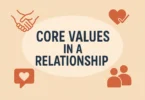Why Relationship Counseling Can Transform Your Love Life. Every relationship faces challenges. Whether it’s communication breakdowns, emotional disconnect, or unresolved conflicts, couples often find themselves stuck in repetitive cycles of frustration and misunderstanding. When left unaddressed, these issues can weaken the emotional bond and create long-term dissatisfaction.
This is where relationship counseling comes in—not as a last resort, but as a powerful tool for growth, healing, and transformation. Using proven psychological frameworks like attachment theory, emotional intelligence, and science-backed methods such as the Gottman Method, relationship counseling helps couples understand their patterns, rebuild trust, and foster deeper emotional connections.
In this article, we’ll explore how relationship counseling can reshape your love life, diving into the power of emotional intelligence, the role of attachment styles, and the effectiveness of science-based relationship strategies. Whether you’re looking to strengthen your relationship or heal past wounds, understanding these concepts can help you build a lasting, fulfilling partnership.
Headlines
How Relationship Counseling Strengthens Love and Communication
- Understanding the Power of Relationship Counseling
- The Role of Emotional Intelligence in Relationship Counseling
Key Techniques Used in Relationship Counseling for Personal Growth
- The Gottman Method: Science-Backed Strategies for Lasting Love
- The Impact of Attachment Theory on Relationship Counseling
- How Attachment Theory Shapes Relationship Counseling
How Relationship Counseling Strengthens Love and Communication
Understanding the Power of Relationship Counseling
Relationships are the foundation of emotional well-being, yet they often come with challenges that can strain even the strongest bonds. Relationship counseling serves as a valuable tool for couples seeking to navigate conflicts, strengthen communication, and build a more fulfilling connection.
What is Relationship Counseling?
At its core, relationship counseling is a form of therapy designed to help couples and individuals address issues that arise in romantic relationships. Unlike general relationship advice, which tends to be surface-level, counseling takes a structured, psychological approach to resolving deeper emotional conflicts.
Therapists use evidence-based techniques, such as the Gottman Method and Cognitive Behavioral Therapy (CBT), to help couples recognize negative behavioral patterns, improve communication, and develop stronger emotional bonds. Whether a couple is struggling with recurring arguments, intimacy issues, or trust concerns, relationship counseling provides a safe space to work through these challenges.
Common Issues Addressed in Relationship Counseling
Many couples assume that relationship counseling is only for those on the brink of separation. In reality, counseling can benefit relationships at any stage—whether you’re newly dating, engaged, married, or even long-term partners looking to enhance your connection. Some of the most common issues addressed in couples therapy include:
- Communication breakdowns – Misunderstandings, unresolved conflicts, or the inability to express emotions effectively.
- Trust and infidelity issues – Rebuilding trust after a betrayal or strengthening trust to prevent future problems.
- Emotional disconnection – Feeling distant from a partner, lacking intimacy, or struggling to maintain emotional closeness.
- Conflict resolution – Learning how to navigate disagreements in a healthy and constructive manner.
- Parenting stress – Balancing relationship dynamics while raising children.
- Financial disagreements – Managing financial conflicts and setting shared goals.
The Research Behind Relationship Counseling
Numerous studies, particularly those conducted by Dr. John Gottman, have shown that relationship counseling can significantly improve relationship satisfaction. Gottman’s research highlights that couples who engage in counseling develop better emotional intelligence, improved conflict resolution skills, and a deeper understanding of their partner’s needs.
Another influential concept in therapy is attachment theory, which suggests that the way we bond with romantic partners is influenced by our early childhood experiences. A relationship counselor can help individuals identify their attachment style—whether secure, anxious, or avoidant—and guide them toward forming healthier relationship patterns.
Why Relationship Counseling Matters for Self-Improvement
Beyond strengthening a romantic partnership, relationship counseling is a tool for personal growth and self-improvement. It encourages self-awareness, emotional regulation, and the ability to express needs without fear of judgment. Many people who undergo relationship therapy report not only better relationships but also improved mental health, confidence, and overall life satisfaction.
By investing in relationship counseling, couples gain valuable skills that not only transform their love life but also enhance their personal well-being. Instead of viewing therapy as a last resort, think of it as an investment in the health and longevity of your relationship.
The Role of Emotional Intelligence in Relationship Counseling
Emotional intelligence (EI) is the ability to recognize, understand, and manage both your own emotions and those of others. In the context of relationship counseling, emotional intelligence plays a crucial role in helping couples develop deeper connections, communicate more effectively, and resolve conflicts in a healthy way. When partners enhance their emotional awareness, they become better equipped to support each other, navigate challenges, and foster a more fulfilling relationship.
What is Emotional Intelligence in Relationships?
Emotional intelligence in relationships involves:
- Self-awareness: Recognizing your own emotional triggers and reactions.
- Self-regulation: Managing emotions effectively to prevent unnecessary conflicts.
- Empathy: Understanding your partner’s feelings and perspectives.
- Social skills: Communicating needs and concerns in a respectful and constructive way.
- Motivation: Staying committed to relationship growth and improvement.
John Gottman, a leading researcher in relationship psychology, found that couples with high emotional intelligence tend to have more stable and fulfilling relationships. They are better at handling disagreements, expressing affection, and supporting each other’s needs. Relationship counseling helps couples strengthen these emotional intelligence skills, leading to deeper emotional intimacy and long-term satisfaction.
How Relationship Counseling Develops Emotional Intelligence
A major focus of relationship counseling is helping individuals and couples improve their emotional intelligence through guided self-reflection and effective communication techniques. Some of the key ways therapy fosters emotional intelligence include:
1. Active Listening and Emotional Awareness
Many relationship issues stem from poor communication and misunderstandings. Relationship counseling teaches couples how to actively listen, which means:
- Giving your partner your full attention without interrupting.
- Reflecting on what they say before responding.
- Acknowledging their feelings without dismissing or minimizing them.
Therapists often use exercises like mirroring, where one partner repeats back what they heard in their own words, ensuring clarity and reducing miscommunication. This enhances emotional intelligence by training couples to tune in to each other’s emotions and needs.
2. Managing Emotions and Reducing Conflict
When emotions run high, arguments can escalate quickly. Emotional regulation is a core component of emotional intelligence that helps partners avoid reactive behaviors like yelling, blaming, or withdrawing.
Relationship counselors often use Cognitive Behavioral Therapy (CBT) techniques to help individuals:
- Identify negative thought patterns that contribute to conflicts.
- Develop healthier ways to process and express emotions.
- Learn stress-management strategies, such as mindfulness and deep breathing, to stay calm during disagreements.
Couples who develop emotional regulation skills through counseling can approach conflicts with patience and understanding, rather than impulsive reactions that may harm the relationship.
3. Enhancing Empathy and Emotional Connection
Empathy is the ability to understand and share your partner’s feelings. It allows couples to support each other emotionally and foster a deeper bond. In therapy, couples learn to:
- Recognize and validate their partner’s emotions.
- Express appreciation and gratitude regularly.
- Show physical and emotional affection in ways that align with their partner’s needs.
Many therapists use tools like the Love Languages framework by Dr. Gary Chapman to help couples identify how they best receive and express love—whether through words of affirmation, quality time, acts of service, physical touch, or gifts.
The Link Between Emotional Intelligence and Relationship Longevity
Research shows that couples with higher emotional intelligence experience:
- Greater relationship satisfaction
- Stronger emotional and physical intimacy
- Lower divorce and separation rates
- More effective conflict resolution skills
Relationship counseling plays a key role in developing emotional intelligence, ensuring that couples not only improve their relationship but also grow as individuals. Emotional intelligence is a skill that can be learned and strengthened, making it a powerful tool for couples looking to transform their love life.
Key Techniques Used in Relationship Counseling for Personal Growth
The Gottman Method: Science-Backed Strategies for Lasting Love
Relationships can be one of the most fulfilling aspects of life, yet even the strongest couples face challenges. The Gottman Method, developed by Dr. John Gottman and Dr. Julie Schwartz Gottman, is a science-backed approach to relationship counseling that helps couples build stronger emotional connections, resolve conflicts effectively, and create lasting love. This method is rooted in decades of research on what makes relationships succeed or fail, offering couples a practical roadmap for improving their bond.
What is the Gottman Method?
The Gottman Method is an evidence-based approach to relationship counseling that focuses on strengthening emotional bonds, managing conflicts constructively, and fostering intimacy. Dr. John Gottman, a renowned relationship psychologist, spent over 40 years researching couples to identify the behaviors that lead to relationship success or failure. His research led to the creation of the Gottman Institute, which provides relationship counseling and workshops to help couples improve their partnerships.
The Gottman Method is unique because it is backed by scientific studies rather than just opinion-based advice. Using a research-based framework, it helps couples identify problem areas, develop emotional intelligence, and build trust.
The Four Horsemen: Recognizing Destructive Relationship Patterns
One of the key findings from Gottman’s research is that certain negative communication patterns, called the Four Horsemen of the Apocalypse, predict relationship dissatisfaction and even divorce. These include:
- Criticism – Attacking a partner’s character instead of addressing specific behavior.
- Example: “You never listen to me. You’re so selfish.”
- Solution: Use “I” statements instead of blaming. Example: “I feel unheard when you don’t acknowledge my concerns.”
- Contempt – Showing disrespect, sarcasm, or mockery, which erodes trust.
- Example: Rolling eyes, making belittling comments.
- Solution: Practice gratitude and appreciation.
- Defensiveness – Avoiding responsibility by making excuses or blaming the partner.
- Example: “It’s not my fault! You always overreact.”
- Solution: Accept some responsibility to encourage a healthier discussion.
- Stonewalling – Withdrawing from a conversation or shutting down emotionally.
- Example: Giving silent treatment or walking away.
- Solution: Take a break, then return to the conversation when calm.
Relationship counseling using the Gottman Method helps couples recognize and replace these harmful behaviors with healthier communication strategies.
The Sound Relationship House: Building a Stronger Love Connection
The Gottman Method introduces the Sound Relationship House, a framework that helps couples build a healthy and resilient relationship. This model consists of seven key principles:
- Build Love Maps – Knowing your partner’s world, including their dreams, worries, and daily experiences.
- Express Fondness and Admiration – Regularly showing appreciation and affection.
- Turn Toward Instead of Away – Responding positively to small bids for attention and emotional connection.
- Maintain a Positive Perspective – Seeing the best in your partner instead of focusing on negativity.
- Manage Conflict – Addressing disagreements constructively rather than letting them escalate.
- Make Life Dreams Come True – Supporting each other’s aspirations and personal growth.
- Create Shared Meaning – Developing rituals, traditions, and values that strengthen the bond.
Relationship counseling using the Sound Relationship House helps couples actively work on these principles to foster trust, emotional security, and long-term satisfaction.
Practical Gottman Method Strategies Used in Relationship Counseling
Counselors trained in the Gottman Method use various exercises and interventions to help couples improve their relationships. Some of the most effective strategies include:
- The Stress-Reducing Conversation – A guided conversation where partners listen empathetically to each other’s stressors without offering solutions unless asked.
- The 5:1 Ratio – Studies show that couples who maintain five positive interactions for every negative one have stronger relationships.
- The Repair Attempt – Teaching couples how to de-escalate conflicts by using humor, affection, or an apology before tensions escalate.
- Love Maps Exercise – Encouraging couples to ask meaningful questions about each other’s hopes, fears, and goals.
How the Gottman Method Transforms Relationships
Couples who engage in Gottman Method counseling often report:
Better communication and conflict resolution skills.
Increased emotional intimacy and trust.
A stronger friendship and sense of partnership.
Less negativity and criticism in daily interactions.
Greater satisfaction and stability in their relationship.
Final Thoughts: Why the Gottman Method Works
The Gottman Method is one of the most widely respected approaches in relationship counseling because it is rooted in science and practical strategies. By addressing negative patterns, building emotional intelligence, and strengthening intimacy, this method empowers couples to create a lasting and fulfilling relationship.
If you and your partner are facing challenges, working with a relationship counselor trained in the Gottman Method can help you turn conflict into connection and deepen your love for the long haul.
The Impact of Attachment Theory on Relationship Counseling
Attachment theory is one of the most influential psychological frameworks for understanding how people form and maintain relationships. Originally developed by John Bowlby and later expanded by Mary Ainsworth, attachment theory explains how early life experiences with caregivers shape the way individuals connect with romantic partners in adulthood.
In relationship counseling, attachment theory provides a scientific foundation for understanding why couples experience certain challenges, emotional triggers, and recurring patterns in their relationships. By identifying their attachment styles, partners can gain insights into their behaviors, learn how to develop secure emotional bonds, and improve the overall quality of their relationship.
Understanding Attachment Styles in Relationships
Attachment theory classifies people into four main attachment styles, each of which plays a crucial role in shaping how individuals connect with their partners:
1. Secure Attachment – The Foundation of Healthy Relationships
- Individuals with a secure attachment style are comfortable with intimacy and independence.
- They trust their partners, communicate openly, and handle conflicts in a healthy way.
- People with this attachment style tend to have long-lasting, fulfilling relationships.
💡 In relationship counseling: Therapists help couples cultivate the characteristics of secure attachment by promoting emotional safety, trust, and open communication.
2. Anxious Attachment – Fear of Abandonment
- People with anxious attachment often crave closeness but fear rejection or abandonment.
- They may need constant reassurance from their partner and struggle with overthinking in relationships.
- Their emotional reactions to perceived threats can lead to clinginess, jealousy, or conflict.
💡 In relationship counseling: The focus is on helping anxious partners develop self-confidence, emotional regulation, and trust in their relationship.
3. Avoidant Attachment – Fear of Intimacy
- Those with an avoidant attachment style value independence and may struggle with emotional closeness.
- They often withdraw during conflicts, suppress their emotions, and feel uncomfortable with vulnerability.
- Their partners may feel neglected or unwanted due to their emotional detachment.
💡 In relationship counseling: Therapists work on breaking down emotional barriers, improving vulnerability, and teaching avoidant individuals how to express their emotions more openly.
For more information about Intimacy: The Power of True Intimacy
4. Disorganized Attachment – A Push-Pull Dynamic
- A combination of anxious and avoidant tendencies, leading to conflicting behaviors in relationships.
- Individuals with this attachment style may desire closeness but fear getting hurt, leading to inconsistent and unpredictable relationship patterns.
- This attachment style is often linked to past trauma or unstable childhood experiences.
💡 In relationship counseling: The goal is to provide healing strategies, emotional stability, and trust-building exercises to help the couple create a more secure connection.
How Attachment Theory Shapes Relationship Counseling
Attachment theory plays a crucial role in relationship counseling by providing a framework for understanding why couples interact the way they do. Here are some key ways attachment theory is applied in therapy:
1. Identifying Attachment Patterns
Many couples repeat the same conflicts without understanding why. A relationship counselor helps partners recognize their attachment styles and how they impact their behaviors, emotional reactions, and communication patterns.
For example:
- An anxious partner may constantly seek reassurance, making the avoidant partner feel overwhelmed and distant.
- This creates a pursuer-distancer dynamic, where one partner chases for emotional closeness while the other withdraws, causing frustration on both sides.
Therapists help couples break these unhealthy cycles by encouraging secure and supportive interactions.
2. Strengthening Emotional Security
A lack of emotional security is one of the main reasons couples struggle. Relationship counseling, through the lens of attachment theory, focuses on:
- Helping partners express their needs, fears, and emotions in a safe environment.
- Encouraging validation and reassurance to build trust.
- Teaching couples how to co-regulate their emotions instead of reacting impulsively.
By creating a sense of security and reliability, partners learn to trust and support each other, leading to a more fulfilling relationship.
3. Healing Past Emotional Wounds
Many attachment issues stem from past experiences, such as childhood neglect, previous relationship betrayals, or unresolved trauma. Relationship counseling helps individuals:
- Understand how their past affects their current relationships.
- Develop self-awareness and emotional resilience.
- Learn how to form healthy, secure connections instead of repeating past patterns.
For example, someone with a disorganized attachment style may benefit from trauma-informed therapy to address deep-seated fears about relationships.
4. Improving Communication and Conflict Resolution
Attachment theory teaches couples that their communication struggles often stem from emotional fears and unmet needs.
- Instead of reacting defensively or withdrawing, couples learn to express their needs clearly.
- They develop strategies for de-escalating conflicts, such as using “I” statements instead of blaming their partner.
- Therapists guide them in active listening exercises to ensure both partners feel heard and understood.
These techniques help reduce misunderstandings and strengthen emotional bonds.
The Link Between Attachment and Relationship Satisfaction
Research shows that secure attachment is linked to higher relationship satisfaction, better conflict resolution, and longer-lasting partnerships. Couples who work through their attachment issues in therapy often experience:
Stronger emotional connections and deeper intimacy.
Less anxiety and insecurity in their relationship.
Healthier communication patterns with fewer conflicts.
A greater sense of trust and stability.
By integrating attachment theory into relationship counseling, couples can break unhealthy cycles, develop emotional security, and create a stronger, more fulfilling love life.
Final Thoughts: Why Attachment Theory Matters in Relationship Counseling
Understanding attachment styles provides couples with a powerful tool for improving their relationships. When partners become aware of how their past experiences influence their emotional needs and behaviors, they can work towards developing a secure, trusting, and loving partnership.
If you and your partner are struggling with emotional disconnection, fear of intimacy, or repeated conflicts, a relationship counselor trained in attachment theory can help you build a stronger foundation for lasting love.
Relationships aren’t about finding perfection—they’re about building connection, trust, and emotional security. Every couple encounters struggles, but the difference between relationships that thrive and those that fail often comes down to how conflicts are handled and how well partners understand each other’s emotional needs.
Relationship counseling provides the tools needed to break destructive cycles, improve communication, and create stronger, healthier connections. By integrating attachment theory, emotional intelligence, and science-backed techniques like the Gottman Method, couples can rewrite their relationship dynamics and foster long-term love and happiness.
If you and your partner are facing challenges, seeking professional guidance can be a transformative step toward a more fulfilling, emotionally secure, and deeply connected relationship. Love isn’t just about emotions—it’s about understanding, effort, and the willingness to grow together.








[…] Relationship Counseling: How It Can Transform Your Love Life. […]